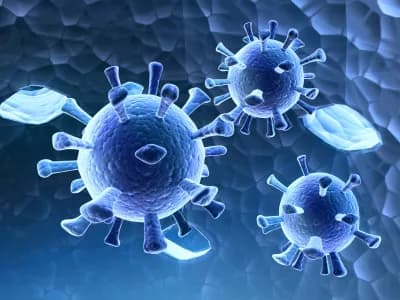
Cancer-Linked Proteins: Drugging The 'Undruggable'
A new study published in Nature, conducted by an alliance between industry and academia involving the University of Liverpool, highlights a new approach to targeting key cancer-linked proteins, thought to be 'undruggable'.
The majority of cancers have a faulty or inactive gene, p53, which allows them grow out of control. The p53 gene is from a class of genes called tumour suppressors. Normally, they limit cell growth by monitoring how quickly cells divide into new cells, repairing damaged DNA, and controlling when a cell dies. When a tumour suppressor gene is mutated, cells grow uncontrollably and may eventually form a mass called a tumour.
Despite its important role in cancer, attempts to target p53 directly have been unsuccessful.
A multidisciplinary research collaboration involving the Universities of Liverpool and Oxford, the Medical Research Council's Laboratory for Molecular Biology in Cambridge, Cancer Research UK and US based, Forma Therapeutics aimed to find a solution to this problem.
The researchers looked at a specialised system, the ubiquitin-proteasome system, which regulates the turnover of a range of proteins, including p53.
Focusing on one enzyme in the system, USP7, the researchers were able to develop two small molecule inhibitors and show how they exploit a unique binding site in the enzyme. When applied to cancer cells they lead to a cascade of events that ultimately elevate p53 and promote normal control mechanisms.
The multi-disciplinary team of experts was brought together by Cancer Research UK's Therapeutic Discovery Laboratories in 2013.
Michael Clague, Professor of Cellular and Molecular Physiology, University of Liverpool's Institute of Translational Medicine, said: "This study provides a proof of principle for a new drug targeting strategy. It opens up opportunities for manipulating proteins relevant to cancer, which have previously been considered out of reach."
Dr Tim Hammonds, Deputy Director, Cancer Research UK Cancer Research Technologies, said: "Our alliance model of bringing together the best academics, our own laboratories and leading industry partners means that we can take novel and bold approaches to tackling some of the biggest challenges in cancer."
Dr Andrew Turnbull, one of the lead researchers at the Cancer Research UK Therapeutic Discovery Laboratories, said: "Our study shows that we can target these 'undruggable' proteins by specifically targeting the enzymes that control them. Combining this revelation with detailed three-dimensional structures of these enzymes, and their potential targets, means this could be the starting point to develop drugs that target them and the proteins they control."
Materials provided by University of Liverpool. Note: Content may be edited for style and length.
Disclaimer: DoveMed is not responsible for the accuracy of the adapted version of news releases posted to DoveMed by contributing universities and institutions.
References:
Andrew P. Turnbull, Stephanos Ioannidis, Wojciech W. Krajewski, Adan Pinto-Fernandez, Claire Heride, Agnes C. L. Martin, Louise M. Tonkin, Elizabeth C. Townsend, Shane M. Buker, David R. Lancia, Justin A. Caravella, Angela V. Toms, Thomas M. Charlton, Johanna Lahdenranta, Erik Wilker, Bruce C. Follows, Nicola J. Evans, Lucy Stead, Cristina Alli, Vladislav V. Zarayskiy, Adam C. Talbot, Alexandre J. Buckmelter, Minghua Wang, Crystal L. McKinnon, Fabienne Saab, Joanna F. McGouran, Hannah Century, Malte Gersch, Marc S. Pittman, C. Gary Marshall, Tony M. Raynham, Mary Simcox, Lorna M. D. Stewart, Sheila B. McLoughlin, Jaime A. Escobedo, Kenneth W. Bair, Christopher J. Dinsmore, Tim R. Hammonds, Sunkyu Kim, Sylvie Urbé, Michael J. Clague, Benedikt M. Kessler, David Komander. (2017). Molecular basis of USP7 inhibition by selective small-molecule inhibitors. Nature. DOI: 10.1038/nature24451
Related Articles
Test Your Knowledge
Asked by users
Related Centers
Related Specialties
Related Physicians
Related Procedures
Related Resources
Join DoveHubs
and connect with fellow professionals

0 Comments
Please log in to post a comment.